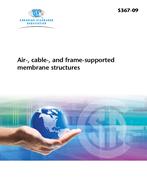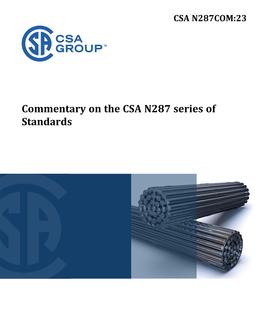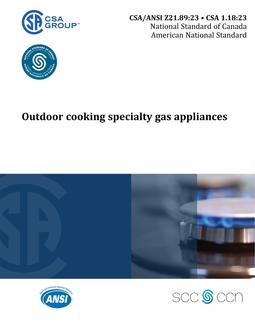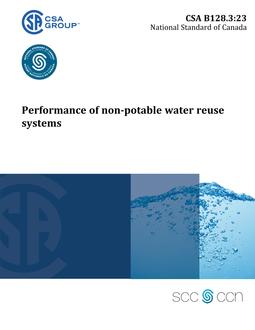
CSA S367-09
- Comments Off on CSA S367-09
- CSA
Click here to purchase
Preface
This is the second edition of CSA S367, Air-, cable-, and frame-supported membrane structures. It supersedes the previous edition, published in 1981 under the title Air-Supported Structures.
Major changes in this edition include
(a) design requirements for membrane-covered structures supported by any self-supporting structural system;
(b) updated provisions for load and resistance design in accordance with the 2010 edition of the National Building Code of Canada; and
(c) updated information on the resistance and performance of membrane materials.
1 Scope
1.1
This Standard provides requirements for the design, fabrication, installation, and maintenance of single-membrane structures that are either reinforced or unreinforced and that are air-supported, frame-supported, or cable-supported.
1.2
The general requirements, structural design methods, loadings, and limit states specified in this Standard are intended to be consistent with the National Building Code of Canada (NBCC), except where more detailed or stringent requirements are necessary for the structural adequacy and the long-term serviceability of structures.
The requirements of this Standard are intended to apply to independent membrane-covered structures and structures that are contiguous with other structures and are attached through a common element.
1.3This Standard does not apply to
(a) multi-walled structures that are not supported by continuous air pressure;
(b) air-beam-supported membrane structures using pressurized air as part of the support system; and
(c) greenhouses that are not covered by Part 3 of the NBCC.
1.4
Other standards may be used for the design of air-, cable-, and frame-membrane supported structures where specified by this Standard. The formulas in this Standard may be supplemented by a rational design based on theory, analysis, and engineering practice acceptable to the authority having jurisdiction, provided that the nominal margins (or factors) of safety are at least equal to those specified in this Standard.
1.5
In CSA Standards, “shall” is used to express a requirement, i.e., a provision that the user is obliged to satisfy in order to comply with the standard; “should” is used to express a recommendation or that which is advised but not required; “may” is used to express an option or that which is permissible within the limits of the standard; and “can” is used to express possibility or capability. Notes accompanying clauses do not include requirements or alternative requirements; the purpose of a note accompanying a clause is to separate from the text explanatory or informative material. Notes to tables and figures are considered part of the table or figure and may be written as requirements. Annexes are designated normative (mandatory) or informative (non-mandatory) to define their application.
Product Details
- Edition:
- 2nd
- Published:
- 08/01/2009
- ISBN(s):
- 9781554912155
- Number of Pages:
- 64
- File Size:
- 1 file , 930 KB



